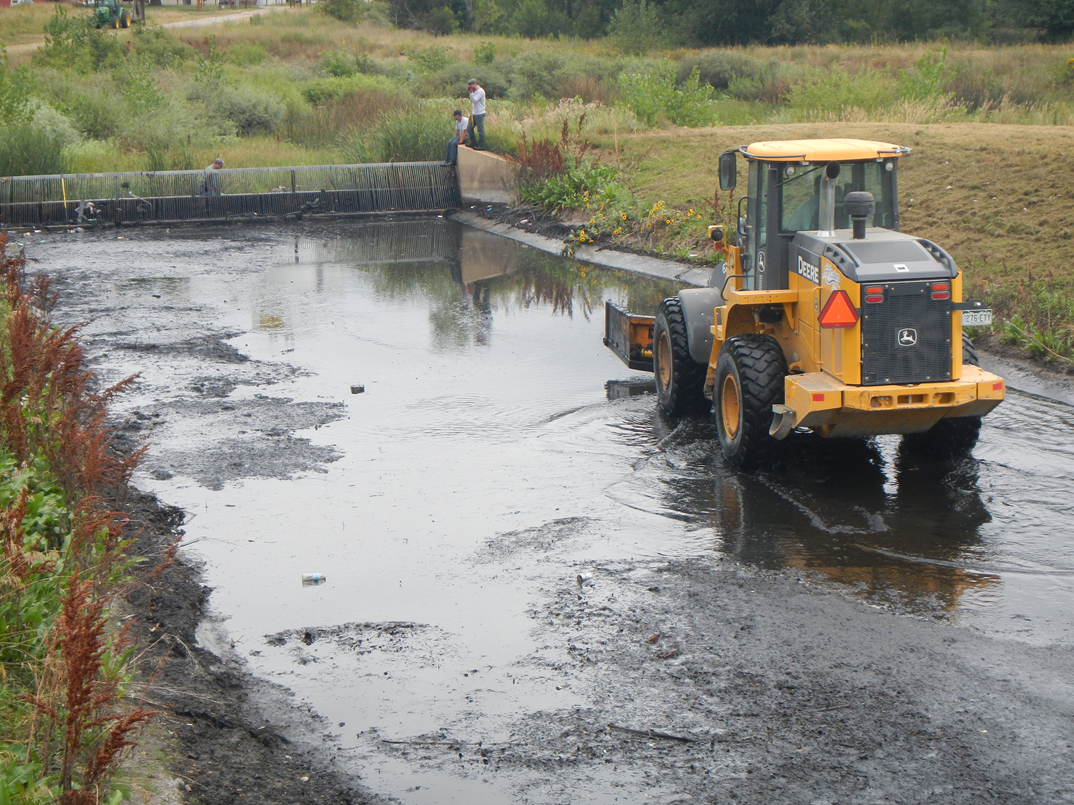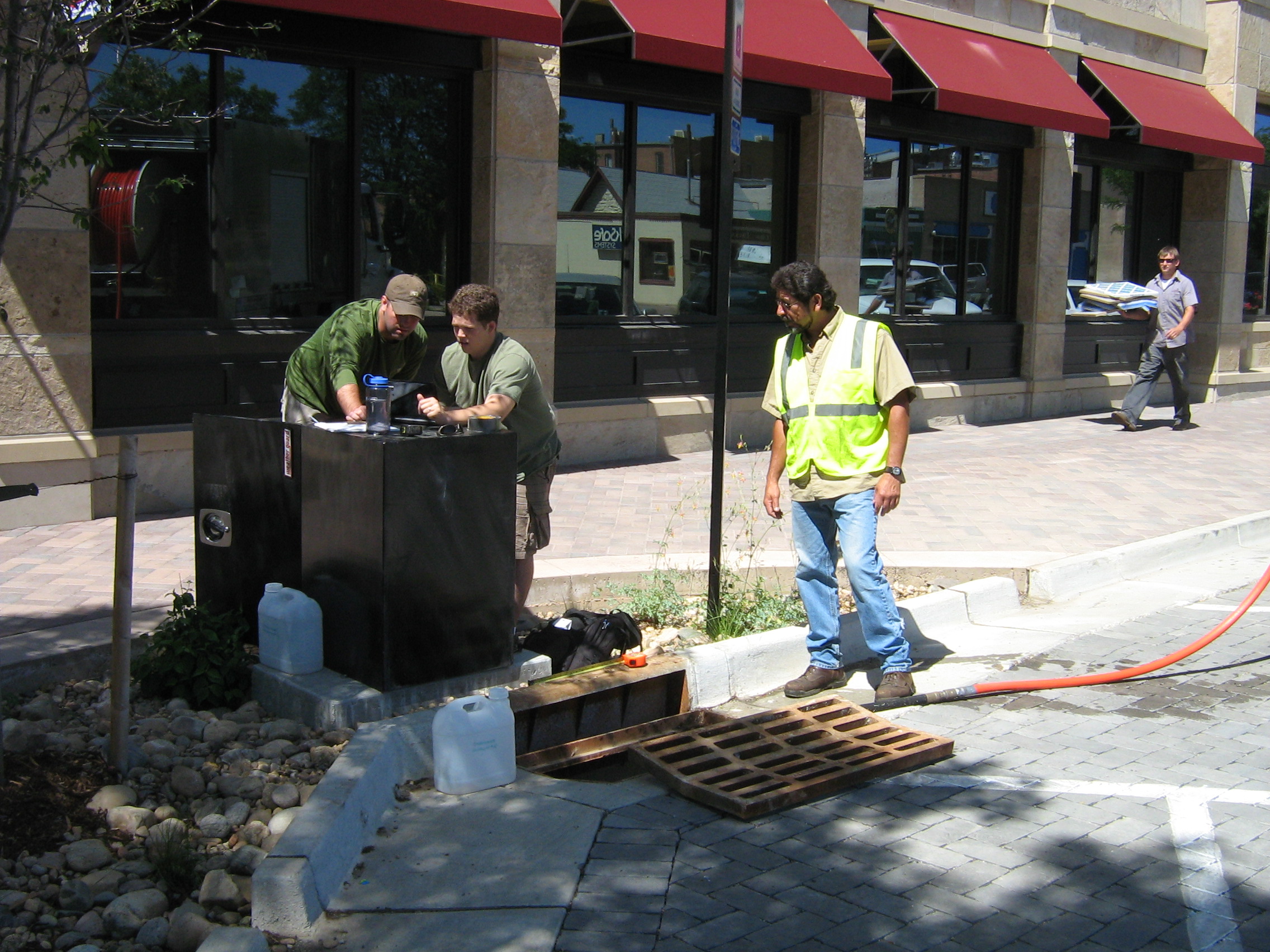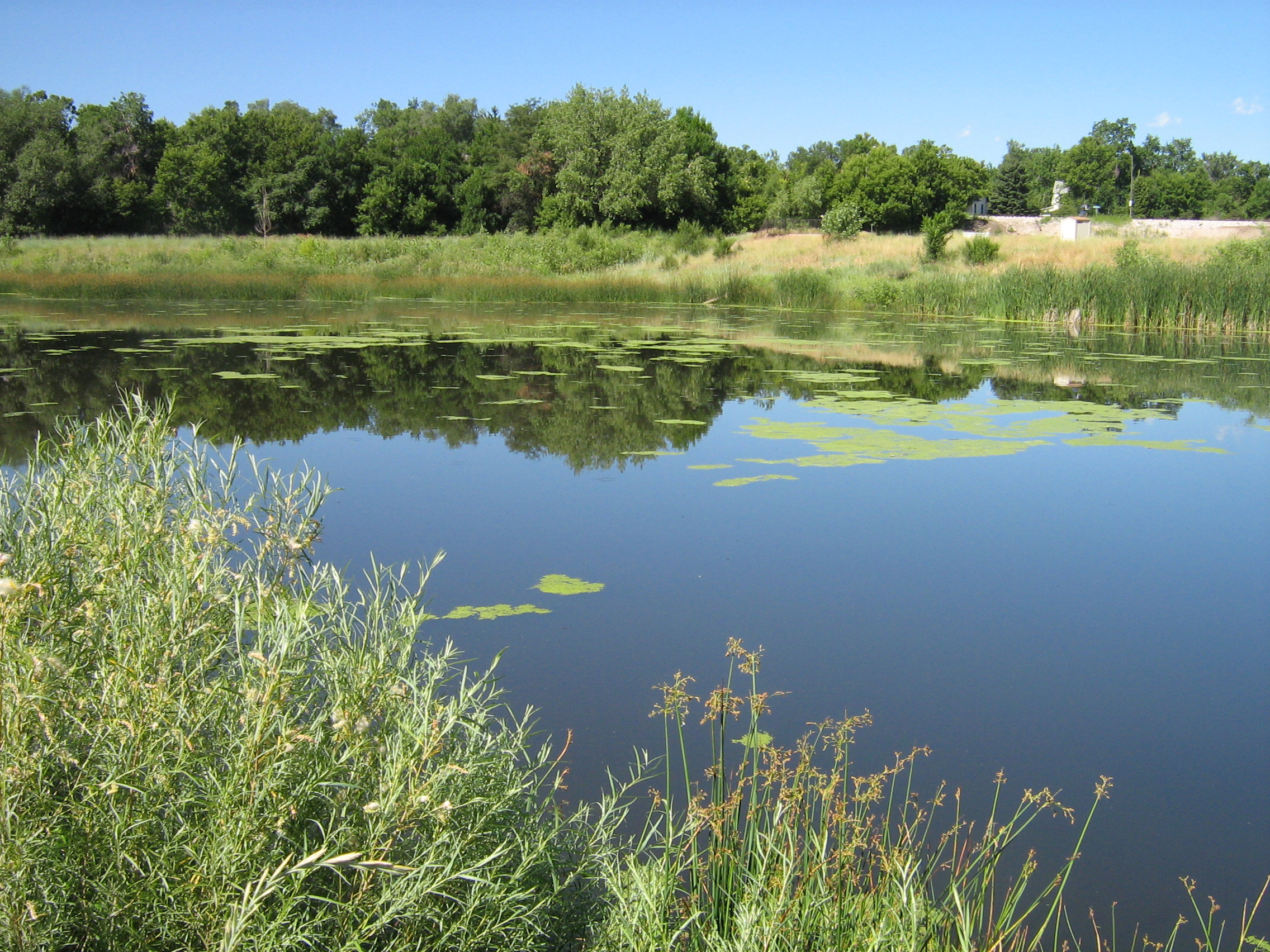Stormwater
Urban stormwater runoff has detrimental impacts to receiving waters; including flooding, stream erosion and pollutant discharges. Stormwater best management practices (BMPs) such as detention/retention basins, constructed wetlands, bioretention/rain gardens, permeable pavements, etc. are used in most cities to reduce the impacts of stormwater runoff. However, much has yet to be learned about BMPs; including their ability to reduce stormwater impacts, long-term costs, maintenance requirements, etc. At the CSU Urban Water Center, we are focused on improving stormwater management by performing research in the following areas:- BMP performance monitoring to quantify runoff and pollutant reductions
- Quantifying BMP life cycle costs
- Determining appropriate BMP maintenance protocols and improving BMP design to minimize maintenance
- Quantifying BMP performance uncertainty
- Developing improved models/modeling techniques for stormwater management decision making
Low Impact Development/Green Infrastructure in Fort Collins, CO
Starting in 2008, the CSU Urban Water Center has worked with the City of Fort Collins Stormwater Utility to evaluate low impact development/green infrastructure (LID/GI) stormwater management techniques throughout the City of Fort Collins. The City of Fort Collins is now the only city in Colorado that requires LID/GI on all new developments and the City continues to fund LID/GI research studies with the CSU Urban Water Center to improve their design and implementation.
LID Projects in Fort Collins, CO
Colorado Stormwater Center
The Colorado Stormwater Center is a partner center housed within CSU Civil and Environmental Engineering that focuses on providing stormwater education and training for the general public. Students who study in the CSU Urban Water Center may have opportunities for assisting with resource development and training workshops within the Colorado Stormwater Center.



